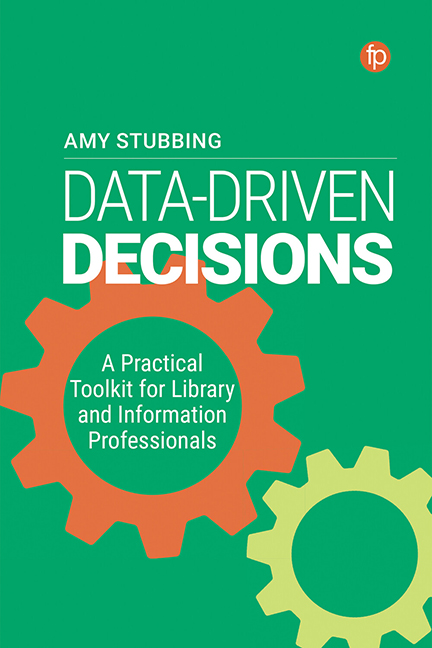12 - Alternative Data Sources: Using Digital and Social Media to Inform Management Decisions in Your Library
Published online by Cambridge University Press: 04 August 2022
Summary
Introduction
When we think about data in library and information service management terms, we tend to think about facts and statistics relating to library operations. As we saw in the toolkit, quantitative statistics can often be generated through automated systems but can also be gathered through other means such as observation (e.g. physically counting people who are using the library). Libraries also generate an equal amount of qualitative data through asking for feedback about the library, which allows us to gain opinions or perceptions from people. These types of data collection are well embedded in the general performance measurement and continual improvement activities of the library profession. Indeed, the current quality and performance measurement literature provides evidence of this trend (Cervone, 2018).
However, there are many less obvious or newly emerging sources of data that we are yet to harness effectively across the profession. This chapter will look at some slightly different approaches to data collection for library management and, in doing so, will identify several alternative digital sources of data which can be used to inform strategic and operational library management decisions. We begin by looking at how a huge range of library-related data can be obtained through web-based and social media channels and platforms. Then we focus on how such data can be analysed and how library managers can use it in a performance measurement and service development environment.
Libraries and social media
Library and information professionals are no strangers to social media and have made effective use of it now for many years, often being the pacesetters and pioneers for innovative use of social media in a professional capacity. The 2014 white paper ‘Use of social media by the library’ identified four distinct areas in which libraries use social media in order to operate and engage with users: marketing and promotion, collection management, outreach, teaching and learning. The paper suggests that libraries and librarians were experimenting with social media usage in the mid-2000s, before it became a mainstream tool for library operations (Taylor & Francis, 2014).
Phil Bradley, a well known library and information commentator and social media expert, reflected how he first discovered social media by accident in 2005 and began to collect and collate social media platforms on his website, as he felt that they might be of some use to the information profession.
- Type
- Chapter
- Information
- Data-Driven DecisionsA Practical Toolkit for Librarians and Information Professionals, pp. 127 - 140Publisher: FacetPrint publication year: 2022



